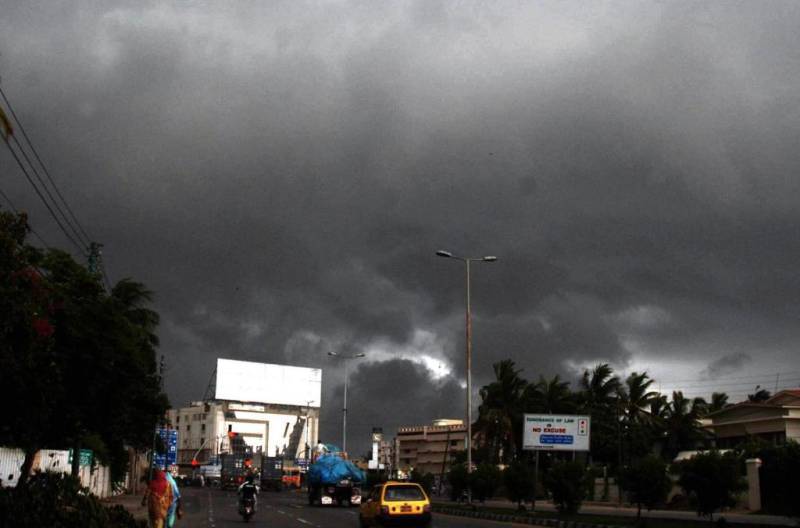The residents of Karachi will be surprised, as the Pakistan Meteorological Department’s prediction of a short term heatwave, was proven false on Tuesday with scattered rainfall across the city. But the light rainfall that dropped temperatures could soon be turning into something far more sinister, the Department has informed. A rain emergency has been declared in Karachi, Mirpur Khas and Hyderabad, alongside flash flooding in the nullas and streams of eastern Balochistan. Fishermen have been advised to not venture in too deep in the sea until September 2.
The monsoon system that brought heavy rainfall to Mumbai over the last two days (and is expected to bring more over the next two) and killed five, is expected to reach Sindh and eastern Balochistan over the next few days. The provincial disaster management authorities have sent out notices to various departments to prepare themselves, but it only hoped that there is a concrete plan in place to prevent unnecessary tragedy.
Perhaps lessons can be drawn from the US in its preparations for Hurricane Harvey and the numerous other storms that the country is assailed by on a yearly basis. The minimal loss of lives – five so far in Harvey – tells us that something is being done right, and there is lots to learn.
The Meteorological Department has highlighted the threat of flash floods in urban centres in Pakistan, it is now the job of provincial authorities and local governments to pinpoint the areas that are most likely to get inundated and follow procedures such as mandatory evacuations, or placing teams that can potentially ferry out any stranded citizens if their lives are under threat. High clearance vehicles, alongside boats and helicopters should be stationed at areas likely to get flooded, with rescue personnel at the ready.
These are all techniques that have proven effective in the US; Pakistan should also attempt to make more of an effort to protect its citizens against natural disasters.
The National Disaster Management Authority needs to take a lead and ensure that the damage to peoples’ lives and property is minimal; areas in cities such as Karachi and in other parts of Sindh, Punjab and Balochistan get flooded on a yearly basis. Raising embankments where rivers and streams rise beyond control and improving drainage systems where urban centres get choked is imperative. The time between a warning of impending disaster and the event itself is crucial in ensuring that the people are safe. Has the state done enough on this occasion?






